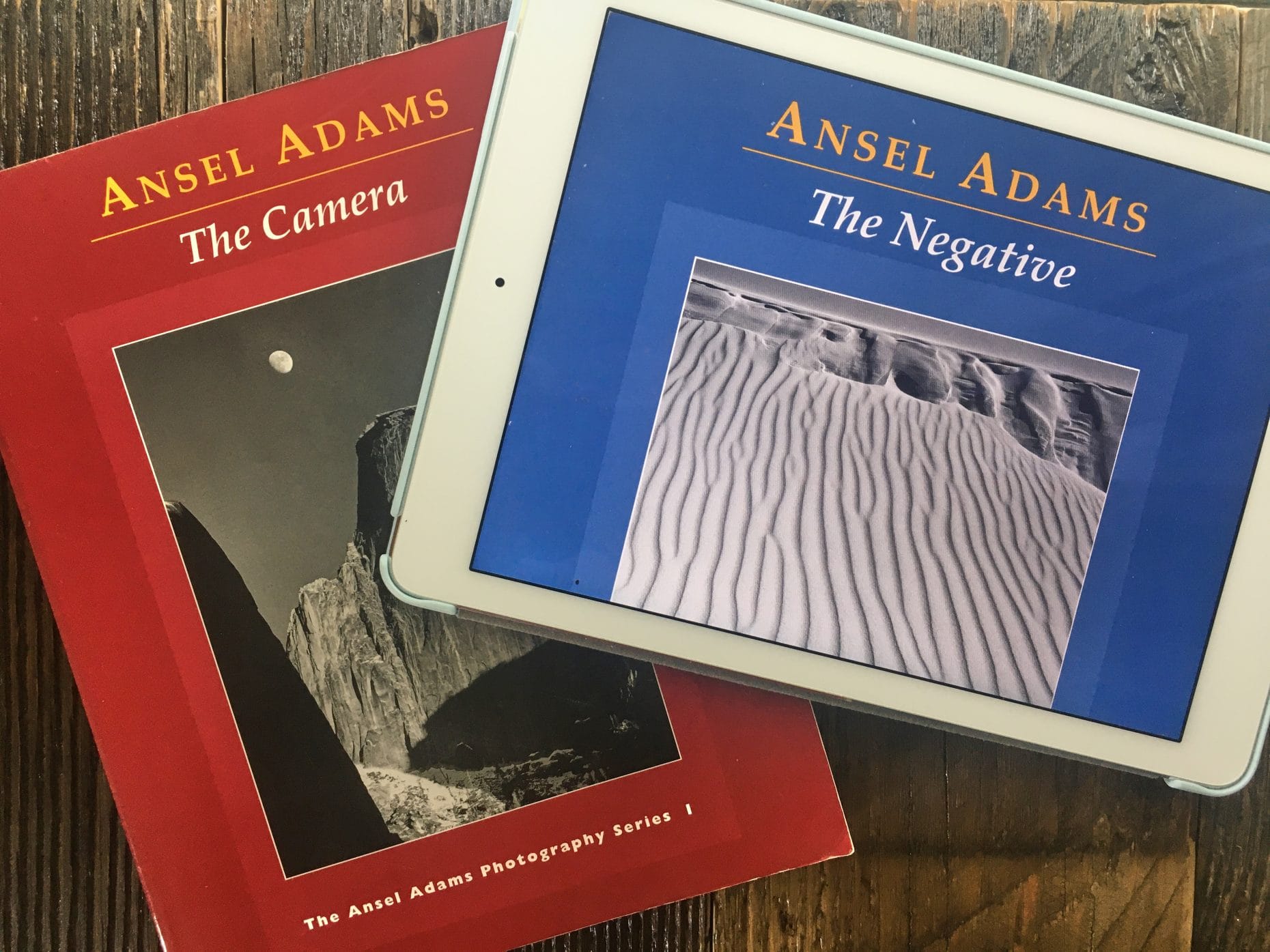Last Updated on November 10, 2025
Ansel Adams
The landscape king thought long and deeply about the art and craft of photography.
On “Visualization”
The concept of visualization is the foundation of this [The Camera] and all the projected books of the series. To visualize an image (in whole or in part) is to see it clearly in the mind prior to exposure, a continuous projection from composing the image through the final print. Visualization is more accurately viewed as an attitude toward photography rather than a dogma. It assumes that the photographer has total freedom of expression, and is in no way restricted by my own, or anyone else’s, ideas of the art. My intention is to help the reader acquire the tools and attitudes that contribute to creative expression, but not to dictate that creativity. —The Camera, page ix (1980)
The challenge to the photographer is to command the medium, to use whatever current equipment and technology furthers his creative objectives, without sacrificing the ability to make his own decisions. The impression prevails that the acquisition of equipment and the following of “rules” assure achievement. Edward Weston’s definitive statement, “composition is the strongest way of seeing,” should clarify the meaning of visualization and put aside the notion that any rules are more than artifice. —The Camera, page x (1980)
The term visualization refers to the entire emotional-mental process of creating a photograph, and as such, it is one of the most important concepts in photography. It includes the ability to anticipate a finished image before making the exposure, so that the procedures employed will contribute to achieving the desired result. This much of the creative process can be practiced and learned; beyond lies the domain of personal vision and insight, the creative “eye” of the individual, which cannot be taught, only recognized and encouraged. —Chapter 1, page 1
On Gear
I urge, again, avoiding the common illusion that creative work depends on equipment alone; it is easy to confuse the hope for accomplishment with the desire to possess superior instruments. —Introduction, page xiii
The next time you pick up a camera think of it not as an inflexible and automatic robot, but as a flexible instrument which you must understand to properly use. An electronic and optical miracle creates nothing on its own! Whatever beauty and excitement it can represent exist in your mind and spirit to begin with. —Introduction, page xiii
The world does not need more books on equipment. It is my intention in this book [The Camera] to stir excitement for photography and its craft in terms of personal expression. Too many people merely do what they are told to do. The greatest satisfaction derives from the realization of your individual potential, perceiving something in your own way and expressing it through adequate understanding of your tools. Take advantage of everything; be dominated by nothing except your own convictions. Do not lose sight of the essential importance of craft; every worthwhile human endeavor depends on the highest levels of concentration and mastery of basic tools. —Introduction, page xiii
Miscellanea
Some friends and colleagues have questioned the time I have spent over the years in writing, teaching, and other activities besides photography itself. I find, however, that such work keeps me in touch with the world; it would be quite impossible for me to live in a shrine dedicated only to my creativity. I have also undertaken much work of the “nuts and bolts” variety of photographic assignment. Some shudder at the thought of soiling their delicate perceptions with such “materialistic rubbish,” but I honestly found that this work taught me much, not only practical craft, but the application of whatever degree of imagination the character of the work would permit. —Introduction, page xi
Even the most realistic photograph is not the same as the subject, but separated from it by the various influences of the photographic system. The photographer may choose to emphasize or minimize these “departures from reality,” but he cannot eliminate them. —Chapter 1, page 1



